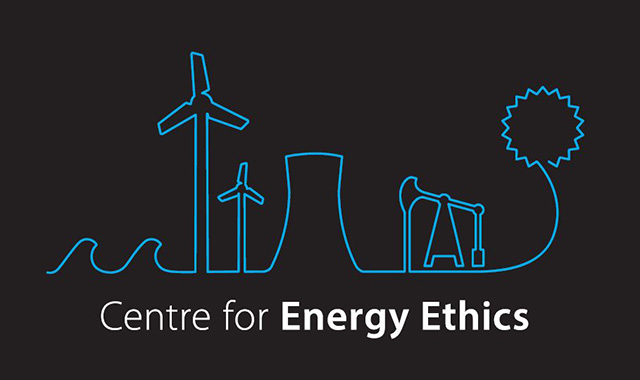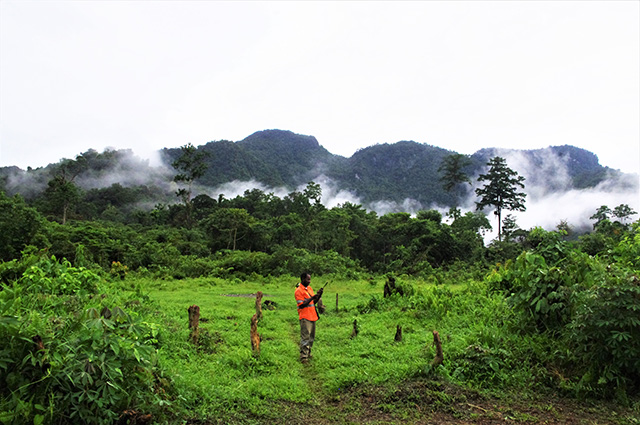Scottish Funding Council: Grants Awarded to Researchers in Department of Social Anthropology
Everyday Experiences of Eco-Anxiety and Climate Activism in Britain
About the Project
Environmental consciousness and activism appear to be on the rise in Britain. At the same time, we are warned of whole generations growing up with anxiety and depression associated with the climate crisis. Eco-anxiety is an area of increasing interest across disciplines, but we know very little about the lived experiences of people dealing with eco-anxiety; how it is defined; affects family life; alters perceptions of the future; and shapes participation in activism.
This topic is both timely and important as the links between the Covid-19 pandemic and climate change are widely discussed in activist circles. The reduction of pollution during lockdown drew attention to climate issues for people in the UK, highlighting the impact of human activity on our environment, and triggering concerns about how this changing environment will affect the future.
Through virtual interviews, focus groups, web and literature-based methods, we ask:
- How is eco-anxiety understood and experienced by climate activists in Britain?
- How do families navigate anxiety and fear when talking about climate change at home, or in schools?
- How do cross-generational activists perceive pasts, presents and futures in connection to the climate crisis?
- How are eco-anxiety and climate activism portrayed in the UK media?
This project has been awarded £48,990 and will run from January to July 2021. The funding will be used to create opportunities for three early-career researchers who will work in collaboration with Dr Bridget Bradley to deliver the project.
Meet the Team

Dr Bridget Bradley
Principal Investigator
This project builds on Bridget’s general research interests on mental health, kinship and community activism, expanding her work to the context of climate change. Bridget has conducted ethnographic fieldwork in Britain; the United States; with online communities; health professionals and within support group settings. She gained her PhD from the University of Edinburgh in 2019 and joined St Andrews as a Lecturer in Medical Anthropology in September this year.

Dr Rika Hirose
Post-Doctoral Research Fellow
Originally from Japan, Rika has been conscious and concerned about environmental issues for a long time and eventually, the nuclear accident at Fukushima led her to leave her career in advertising and enroll in a Master’s program at the University of Edinburgh. After obtaining a MSc in Global Social Change, she went on to complete a PhD in Sustainable Development from the University of St Andrews earlier this year. Her doctoral thesis looked at the relationship between nuclear decommissioning and public engagement, from an intergenerational justice perspective. Rika’s research is not only limited to nuclear issues, but its philosophy is grounded in scrutinizing the ethically defensible solutions for different kinds of environmental problems, which has evidently become a major challenge of our time.

Hannah Fitchett
Research Assistant
Hannah is studying a Social Anthropology PhD at the University of St Andrews, exploring engagement with emotion and ethical values in the global climate justice movement Extinction Rebellion. Her research is multi-sited, focusing on Extinction Rebellion activism in the UK and Spain. Hannah carried out fieldwork among pro-democracy youth activists in Japan for her undergraduate social anthropology degree and currently works part-time in global justice education for the charity Reboot the Future.

Eleonora Ranuzzi
Knowledge Exchange Administrative Assistant
Eleonora graduated from a Social Anthropology MRes from St Andrews University this year, after taking an undergraduate degree in Psychology in Italy. She has always been interested in social dilemmas and issues, conducting research on rape and victim blaming for her undergraduate dissertation, and more recently in St Andrews, investigating lifestyles and beliefs of people involved in sustainable activities for her MRes dissertation.
Centre for Energy Ethics

Dr Mette M High has received generous funding from University of St Andrews through SARIRF, which will enable the official launch of the Centre for Energy Ethics in February 2021. Bringing together the wide range of disciplines that are encompassed by the world of energy, the Centre will be launched with an exciting and diverse programme of events, including webinars, writing retreats and a monthly Energy Café for staff and students across the University. For more information, contact energyethics@st-andrews.ac.uk.
Preserving Peru’s Cultural Heritage: The Decipherment of the Khipus (‘Cord Writing’) of the Andes

[Photo by Dr William Hyland]
Professor Sabine Hyland has been awarded £50,000 for a project called, . This grant will fund one semester of research leave to carry out research that was halted by the pandemic in 2020. Sabine’s research on khipus is among that featured in a major exhibit that recently opened at the Museum of Modern Art in Lima (MALI). Sabine collaborated with the Museum towards this exhibit, with the help of her Marshall funded doctoral student, Manny Medrano.
Local effects, global assemblages, and assessing future impacts of an undeveloped mining project

Dr Emilka Skrzypek has received a SARRF grant for a research project exploring the Environmental Impact Statement (EIS) review process at the Sepik Development Project in Papua New Guinea (PNG), including the proposed Frieda River mine – one of the largest undeveloped copper deposits in the world.
In PNG, the approval process for a new mine requires the company to prepare an EIS to identify the impacts and risks associated with the proposed venture. Once submitted to the government regulator, the EIS is available for public consultation during which groups and individuals can review and comment on the document. Both the EIS and the reviews are then considered by the government as it decides whether to approve a new mine.
The EIS review is one of the main participatory components of a new mine approval process in PNG, and a way for indigenous communities, international observers, and others to feed into the government’s decision-making regarding new mining developments. But it has so far largely escaped scholarly attention, and little is known about the local and global assemblages that form around the review process; motivations and experiences of people involved; and their assessment or perception of the value and effectiveness of the EIS review.
To fill this gap, this research uniquely engages different groups and organizations that took part in the EIS review for Frieda River between November 2018 and April 2020: indigenous organizations, international lawyers, experts and academics, a mining company, a consultancy firm, and a government agency responsible for considering the mining lease application. Grounded in their perceptions and experience of the EIS review at Frieda River, the project asks:
- Assessed from different perspectives, what has been the role, value, and effectiveness of the EIS review?
- What relationships were illuminated, formed, and/or marginalized by the review process?
- What were the factors facilitating and restricting access to the process for different interest groups?
- What different knowledge systems and cultural frames demonstrated themselves during the EIS review, and how were they mediated?
This project has been awarded £42,588 and will run from 1st November 2020 – 31st July 2021